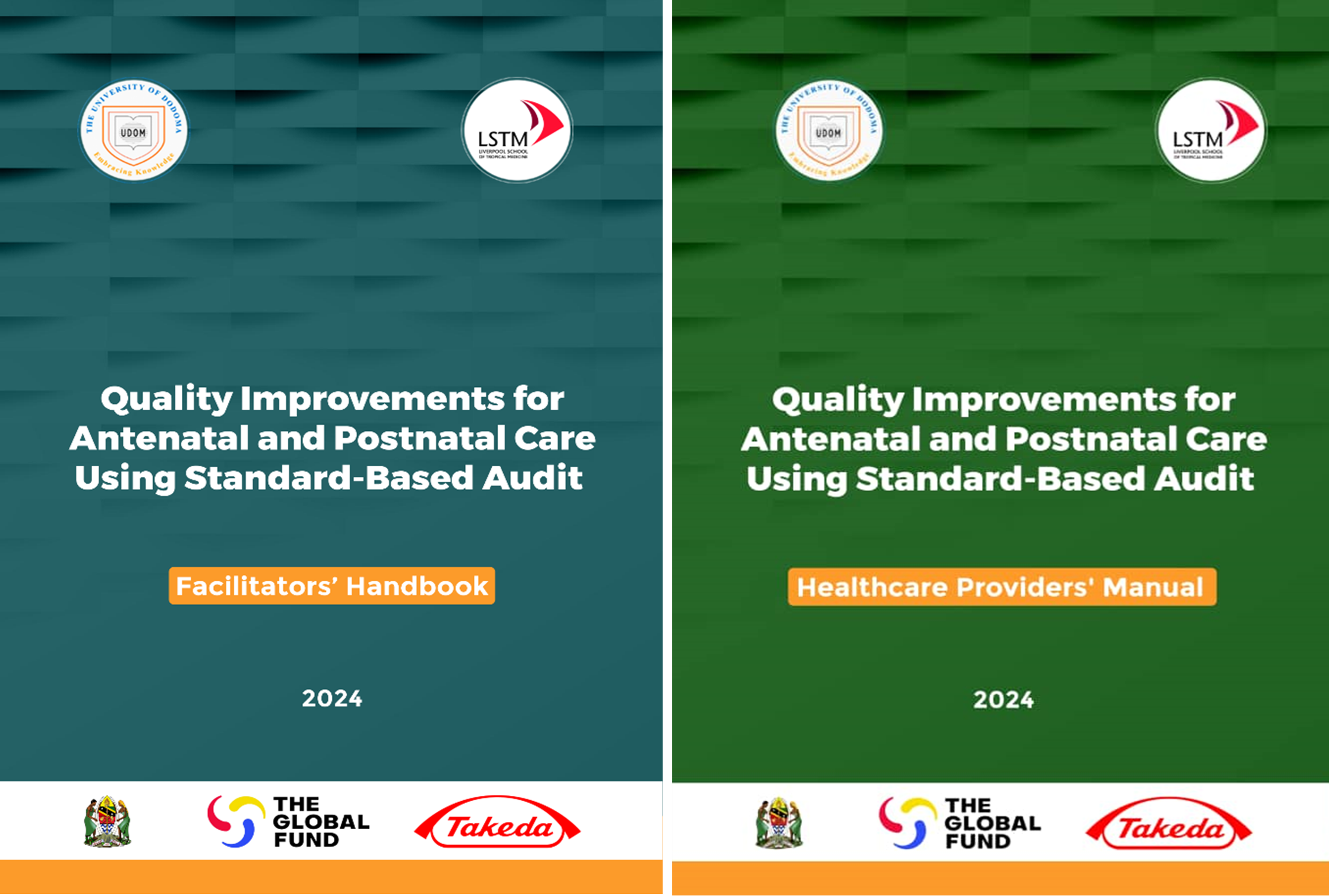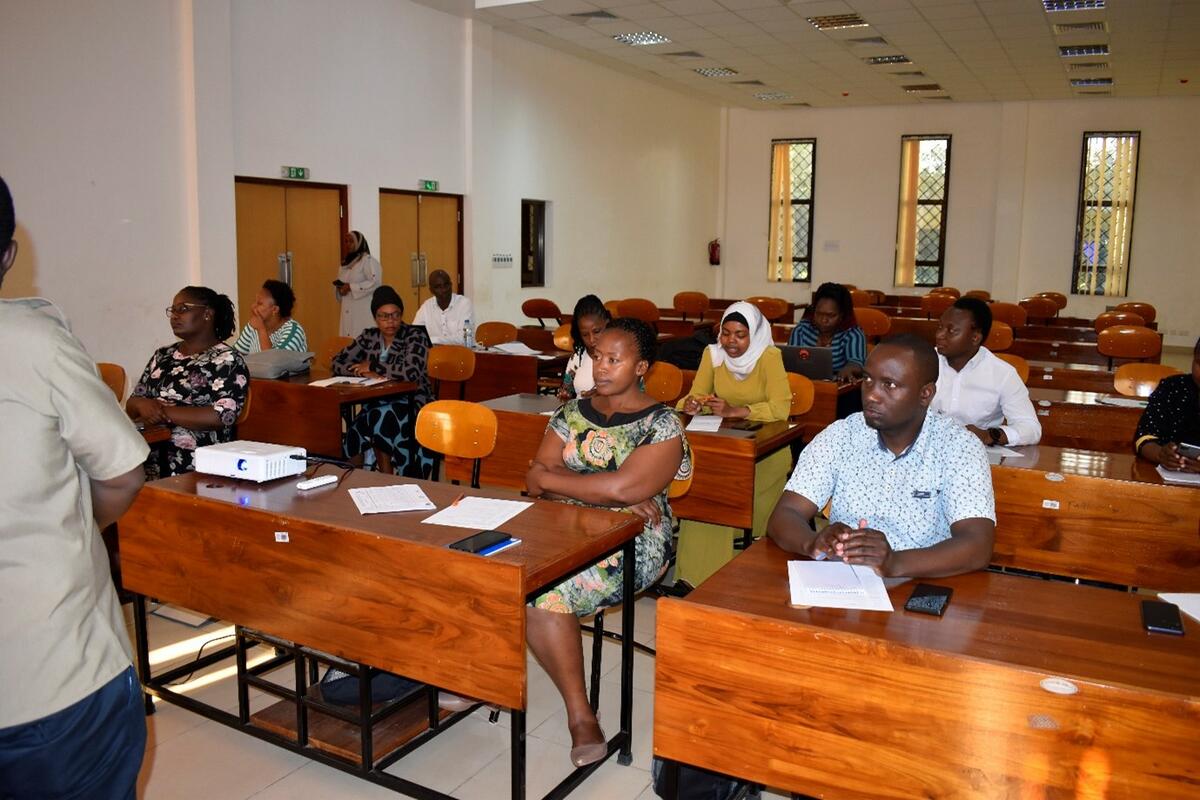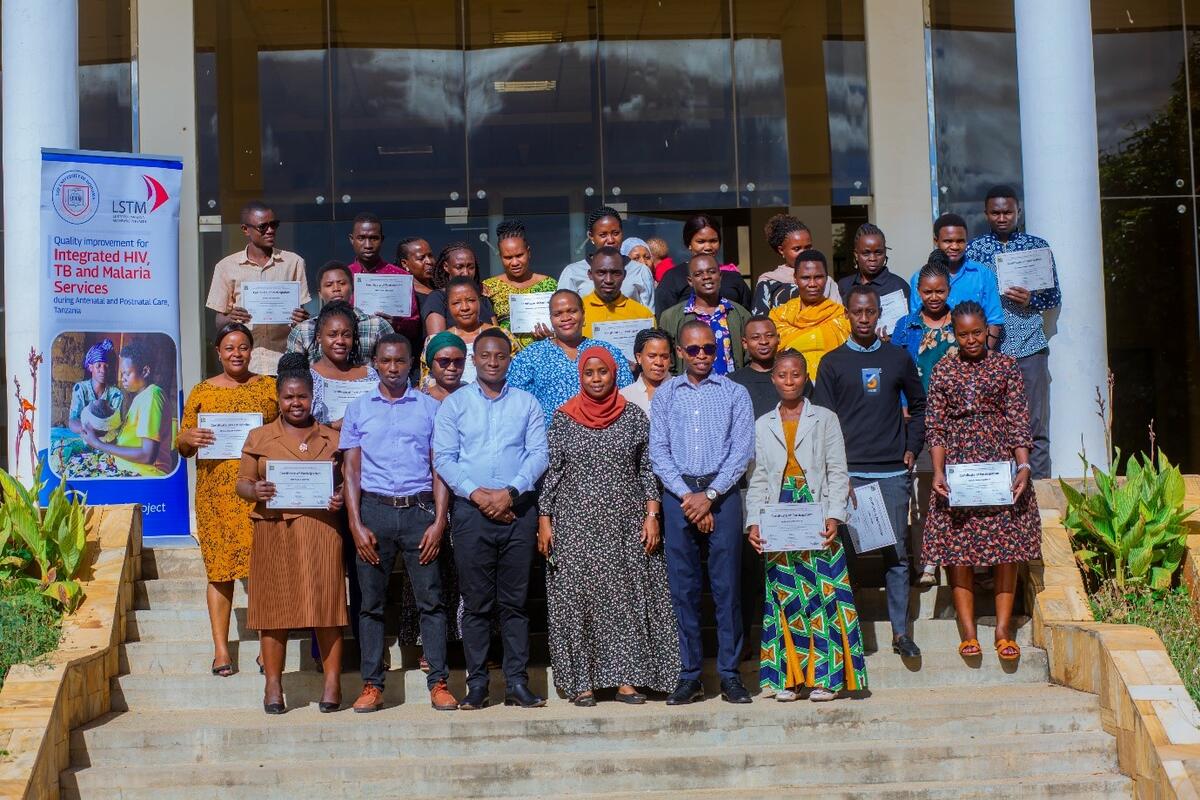
A blog from our partners at The University of Dodoma, Tanzania
The quality of antenatal and postnatal care (ANC & PNC) services is essential for the health and well-being of both mother and baby and to promote favourable outcomes for both. Most healthcare providers are well placed to identify reasons for poor quality and suggest improvements that can be made. However, the quality of care is not the concern of healthcare providers alone but that of everyone working in the healthcare facility.
The Quality Improvement (QI) of Integrated HIV, TB and Malaria Services in ANC & PNC project through its leading implementer, the Liverpool School of Tropical Medicine (LSTM), in collaboration with the University of Dodoma and the Tanzanian Ministry of Health, has developed and adopted Tanzania-based guidelines on ANC & PNC, including quality QI training manuals for facilitators and healthcare providers. These manuals are designed to meet national standards and guidelines, and each facilitator and participant is provided with copies of the manuals for training and self-updates.
The training package focuses on standards-based audits, data collection, and use, fostering a culture of continuous improvement across healthcare facilities. Without agreed-upon and acknowledged standards of care by all relevant healthcare experts in any discipline, judging the quality of care can only be subjective.
Master trainers in QI methodology
Master trainers help guarantee that healthcare providers have the skills to deliver comprehensive and high-quality ANC and PNC services. They are also critical to the sustainability of project interventions as they have the skills to facilitate QI training beyond the project's life.
Fourteen (14) master trainers have been trained through the QI in healthcare blended learning course and completed all three stages of the blended learning course methodology. The master trainers have further trained 188 healthcare providers from eight (8) councils of the Dodoma region.

Healthcare providers trained on QI methodology and use of data for standards-based audits.
Against a target of 210 healthcare workers distributed in seven groups of thirty (30) participants each, 90% have been trained in the QI in healthcare course. The 10% did not take the course due to internet issues in their local working environments. Eighty per cent (80%) of these trained were from dispensaries and health centres, while 10% were from hospitals.

QI Champions
Projects do not always go as planned, but a well-designed monitoring and evaluation (M&E) system helps keep the project on track and performing well. To ensure that everyone in the facility understands the standard-based audit cycle, a brief training session was conducted for 20 selected QI champions from beneficiary health facilities on data collection for M&E of QI implementation.
The champions were selected from each facility’s QI team. The goal was to ensure the full participation of all team members in the data collection process and to obtain accurate data. This also facilitated follow-up and prevented delays in data collection, thereby reducing errors and improving data accuracy. The distribution of QI champions was as follows: Nurse Officers (NO) 40%, Clinical Officers (CO) 35%, Enrolled Nurses (EN) 20%, and Medical Doctors (MD) 5%.
A Kobo toolbox was designed by the project to facilitate data collection. The tool is tailored for each stage of the audit cycle. One great feature of this tool is that it does not require users to download the app to collect data; it can save and send data when an internet connection is available.
By setting rules and benchmarks together after training, healthcare providers can effectively assess their practices and identify areas that need improvement based on the facility level. Ultimately, conducting standard-based audits during ANC and PNC can lead to better quality care for pregnant women and new mothers, reducing maternal and neonatal mortality rates.
The Quality Improvement of Integrated HIV, TB, and Malaria Services in ANC & PNC programme is funded by Takeda’s Global CSR Program through The Global Fund. This five-year initiative (2020-2024) aims to improve the availability and quality of integrated services for HIV, TB, and malaria during ANC & PNC in Kenya, Nigeria, and Tanzania, thereby contributing to improved maternal and newborn health (MNH) outcomes.
This blog was compiled by Lalashe Kiretun, Project Coordinator, The University of Dodoma, Department of Public Health
Editors:
- Dr Leonard Katalambula, Principal Investigator, PI – The University of Dodoma, Department of Public Health
- Janice Njoroge, Development Communications Specialist, Mint Strategic Communications
- Felicia Ohl, Programme Coordinator, Emergency Obstetric and Quality of Care Unit, LSTM
